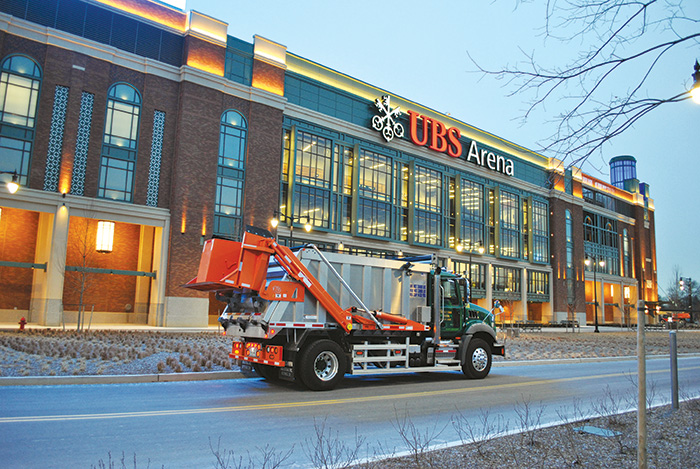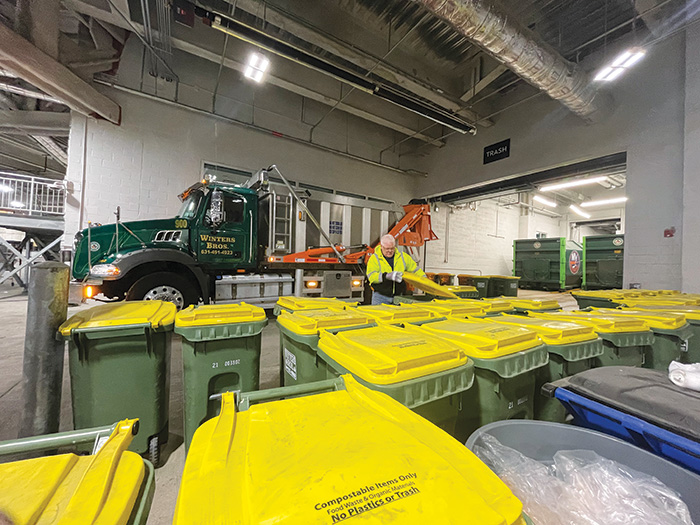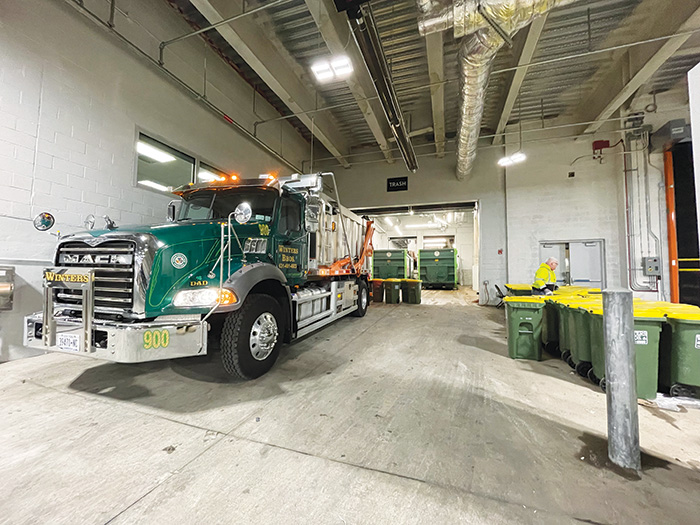Food waste collection programs are becoming more common across the U.S. This article will explore essential guidelines and best practices to ensure a safe and secure workplace for drivers and helpers involved in the food collection process. By understanding the potential risks and implementing appropriate safety measures, we can keep employees safe while managing food waste in an environmentally sound manner.
By Will Flower
Of the 300 million tons of municipal solid waste generated in the U.S. each year, a big chunk of that waste—about 22 percent—is made up of food waste. Because food waste is such a large component of the overall waste stream, municipal officials, waste managers, planners, and regulators have focused their attention on the reduction, composting, and other treatment of food waste in an effort to reduce the amount of food waste that is tossed in landfills and incinerators. Several states have adopted laws requiring food donation and food waste collection and composting programs.

Collecting Food Waste Safely
As more and more food waste is segregated, it is important to recognize some of the unique safety issues associated with food waste collection programs. Improper handling of food waste can attract pests, cause odors, and create safety risks for workers. Following are some tips on how to collect food waste in an environmentally friendly and safe way.
Educate
Collection crews and customers/generators should be educated in the proper disposal methods for food waste. Ensure that employees are trained on proper food waste handling procedures to maintain safety and hygiene standards. Collection workers must use proper personal protective equipment including gloves and eye protection.
Food Waste is Heavy
Collection crews should be careful when moving containers loaded with food waste as they may be extra heavy due to the high moisture content in food waste. A larger number of small carts may be needed to allow for the safe movement of food waste into the collection vehicle.

Photos courtesy of Winters Bros.
Containerization is Important
Use dedicated containers for food waste, such as bins with lids, to contain odors and prevent leaks. Using containers with tight-fitting lids will help prevent pests like flies and rodents from accessing the food waste. Regular washing and sanitizing food waste carts is also required.
Practice Good Housekeeping
Grease and liquids from food waste can be slippery. Keep food waste storage areas clean. Clean and wash away any spills to prevent slips and falls. Regularly clean and sanitize food waste containers to prevent the growth of bacteria and reduce odors. Customers should be instructed to clean and sanitize containers using hot water, soap, detergent, bleach, or other disinfectants.
Service Regularly
Empty food waste containers regularly, especially in hot weather, to prevent the growth of harmful bacteria and reduce odors.
If Needed, Use Pest Control Measures
Food waste can attract flies, ants, and other pests. Implement pest control measures such as regular inspections, sealing entry points, and using traps or baits to prevent pests from accessing food waste.

Label Containers
Clearly label food waste containers to avoid confusion with other waste streams and to ensure proper disposal.
Reduce Environmental Impact
Remember that proper food waste management not only reduces environmental impact, but also contributes to overall safety for employees. You can adapt these tips to your specific situation and local regulations to ensure safe collection, processing, and management of food waste. | WA
Will Flower is the Senior Vice President of Corporate and Public Affairs at Winters Bros. Waste Systems.
Share your safety tip. Submit your suggestions to Will Flower at [email protected].
